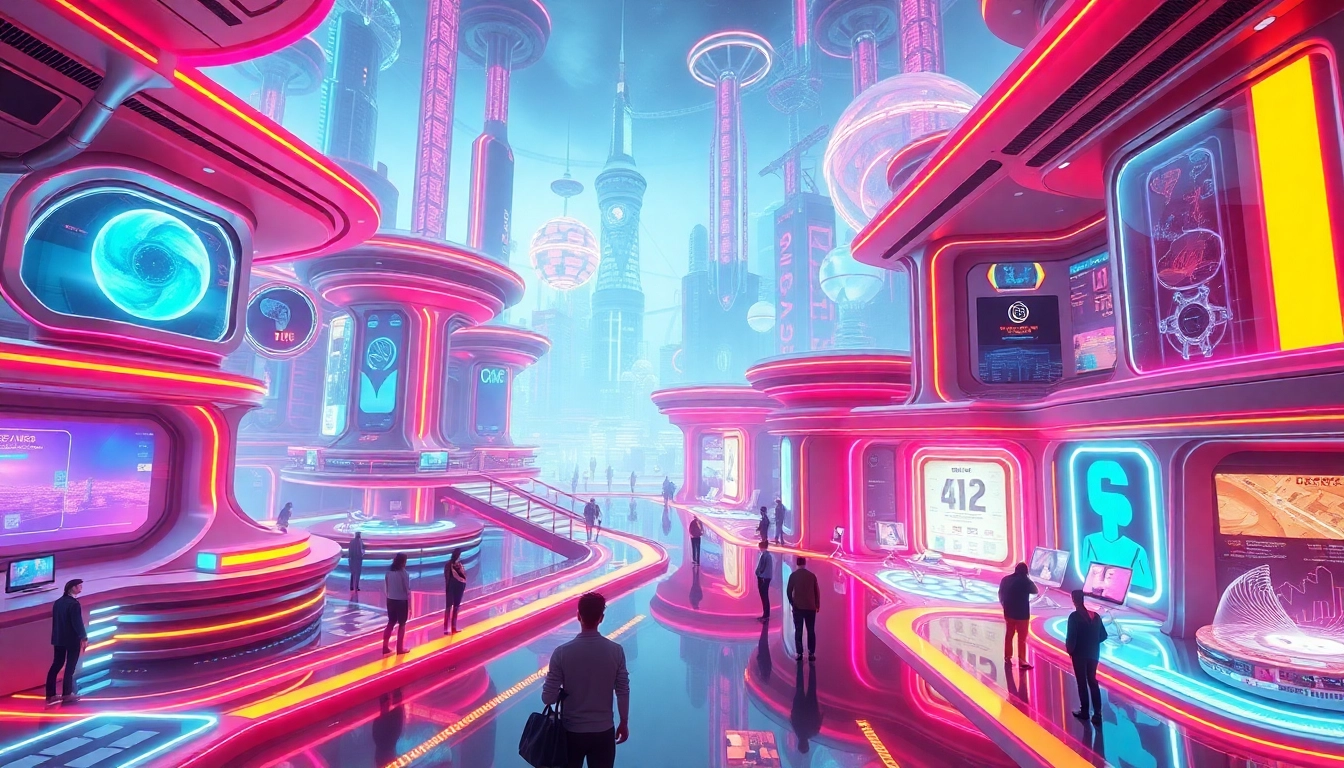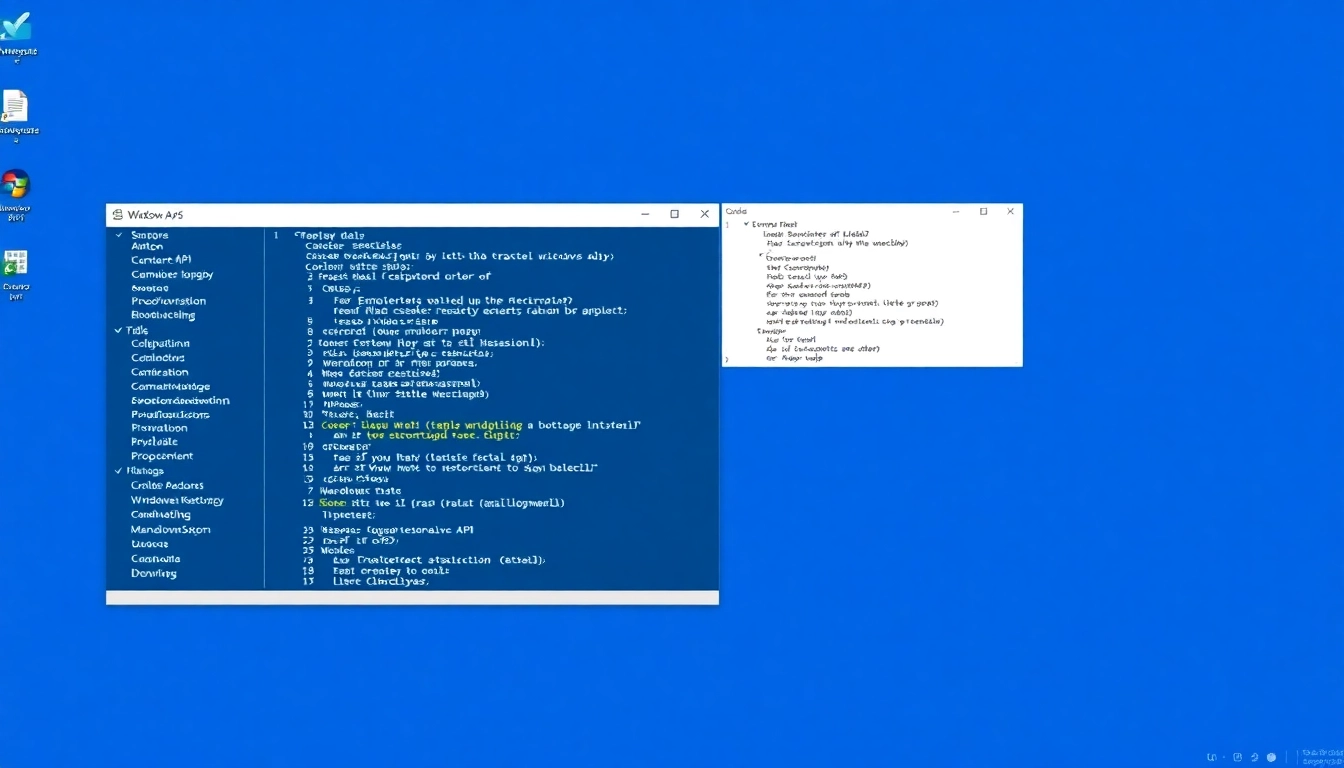Understanding the Latest in the Metaverse: Key Developments and Industry Trends
The landscape of the digital economy is rapidly evolving, with the Metaverse emerging as a central frontier for innovation, investment, and societal transformation. As recent Metaverse Latest News highlights, companies across the globe are increasingly leveraging immersive technologies to redefine how individuals and businesses interact within virtual environments. This comprehensive overview explores the fundamental concepts, recent developments, business implications, and future outlook of the Metaverse, equipping readers with insights to navigate this dynamic ecosystem.
1. Understanding the Metaverse: Foundations and Key Concepts
The Evolution of Virtual Worlds and Digital Ecosystems
The journey toward today’s Metaverse began with early virtual worlds like Second Life, which introduced the concept of persistent online spaces where users could interact, socialize, and create content. Over the past decade, technological advances in graphics, cloud computing, and artificial intelligence have transformed these environments into expansive, interconnected digital ecosystems. Today’s Metaverse encompasses a spectrum of virtual spaces—from gaming platforms such as Roblox and Fortnite to enterprise-focused environments used for remote collaboration and training.
Notably, the integration of blockchain technology has facilitated true ownership of digital assets in the form of non-fungible tokens (NFTs), enabling unique digital collectibles and assets to be bought, sold, and traded securely. The vision is to create a seamlessly integrated virtual economy where users can move fluidly between different worlds, carrying their identities, assets, and reputations.
Core Technologies Driving the Metaverse (AR, VR, blockchain)
At the heart of the Metaverse are several groundbreaking technologies:
- Augmented Reality (AR): Enhances real-world environments with overlaid digital information, allowing for immersive yet tangible experiences. AR is used in retail, navigation, and entertainment to bridge the physical and digital worlds.
- Virtual Reality (VR): Provides fully immersive experiences through headsets like Oculus Quest or HTC Vive, transporting users into synthetic environments for gaming, socializing, and enterprise applications.
- Blockchain and Cryptocurrency: Enable decentralized ownership, secure transactions, and digital economies within the Metaverse. Tokens are used for transactions, access rights, and governance, fostering a trustless environment that incentivizes participation.
Differences Between Metaverse and Traditional Internet Platforms
While traditional internet platforms serve as static hubs for content consumption and communication, the Metaverse offers an active, participatory experience. It emphasizes spatial interactions, avatar-based socialization, and persistent worlds that evolve over time. Unlike conventional websites, the Metaverse encourages embodied presence—users donning VR/AR devices can interact in real-time within a 3D space, creating more natural and engaging exchanges.
Additionally, decentralized ownership models and asset interoperability distinguish the Metaverse from traditional platforms, which often operate within closed ecosystems controlled by single entities.
2. Recent Developments and Trends in the Metaverse Industry
Major Companies Investing in Metaverse Growth
Several tech giants and industry leaders are pouring significant resources into Metaverse development:
- Meta Platforms: Formerly Facebook, Meta has committed billions to building a social Metaverse with immersive VR and AR experiences, integrating platforms like Horizon Worlds and Horizon Workrooms.
- Microsoft: Through its acquisition of gaming studios and focus on enterprise solutions, Microsoft aims to embed Metaverse principles into workplace Collaboration and digital twins.
- Gaming Industry: Companies like Epic Games, Unity, and Tencent invest heavily in creating immersive environments that blur lines between gaming and social interaction.
Innovative Use Cases and Real-World Applications
The Metaverse is no longer just a speculative concept; it’s increasingly impacting sectors such as:
- Healthcare: Virtual simulations enable training and therapy, improving outcomes and accessibility.
- Retail: Virtual stores and showrooms allow consumers to experience products before purchase, enhancing engagement and decreasing returns.
- Education: Immersive classrooms and virtual campuses foster interactive learning experiences remote from physical constraints.
- Real Estate and Urban Planning: Virtual walkthroughs and city models optimize design and community development processes.
Key Challenges and Regulatory Considerations
Despite its promise, the industry faces several hurdles:
- Data Privacy and Security: The vast amount of personal and asset data in the Metaverse raises concerns over misuse and breaches.
- Interoperability: Ensuring assets and identities work seamlessly across varied platforms remains complex.
- Regulatory Frameworks: Governments are debating laws around digital ownership, content moderation, and commercial activity, which could influence development trajectories.
To navigate these issues, stakeholders are advocating for clear standards and collaborative policy-making.
3. How the Metaverse Impacts Business and Consumer Engagement
Opportunities for Brands and Marketers
The immersive nature of the Metaverse presents unparalleled opportunities:
- Creating branded virtual worlds or experiences to deepen customer engagement.
- Launching limited-edition digital assets or collectibles to foster community loyalty.
- Leveraging influencer and avatar-driven marketing to reach niche audiences.
Real-world examples include fashion brands like Gucci and Nike establishing virtual storefronts and NFT collections, illustrating innovative monetization avenues.
Enhancing Customer Experience Through Virtual Environments
Virtual environments enable tailored experiences, such as virtual try-ons, personalized exhibitions, and interactive product demos. These implementations not only increase conversions but also foster stronger emotional connections with users, as they navigate and customize digital spaces that reflect their preferences.
Monetization and Revenue Streams in the Metaverse
Businesses can generate income through various channels:
- Sale of virtual goods, wearables, and accessories.
- Event tickets and access passes for exclusive experiences.
- Advertising and sponsorship within virtual environments.
- Partnerships and co-creation opportunities with users and creators.
Success stories like Decentraland or The Sandbox demonstrate the potential for vibrant metaverse economies that sustain themselves through active participation and commerce.
4. Future Outlook and Predictions for the Metaverse
Emerging Technologies Shaping the Next Phase
The evolution of neural interfaces, 5G connectivity, and AI-driven content generation will accelerate Metaverse capabilities. Neural interfaces could enable thought-based interactions, while 5G ensures low-latency connectivity necessary for seamless experiences. AI will facilitate adaptive environments, intelligent NPCs, and personalized content curation.
Potential Market Growth and Investment Opportunities
Market analysts project the Metaverse industry to grow exponentially, potentially surpassing hundreds of billions of dollars in the next decade. Investment opportunities abound in infrastructure development, platform creation, digital asset marketplaces, and enterprise adoption. Early movers can capitalize on the nascent ecosystem’s growth potential and technological breakthroughs.
Societal and Ethical Implications to Watch
As the Metaverse becomes more integrated into daily life, issues around digital addiction, identity theft, and online harassment may intensify. Ethical considerations include ensuring equitable access, preventing monopolistic dominance, and safeguarding user rights. Policymakers and industry leaders must collaborate to develop frameworks promoting responsible development.
5. Practical Steps to Stay Updated on Metaverse Latest News
Trusted Sources and Industry Reports
Staying informed requires following reputable outlets like Trading & Investment News, industry whitepapers, and official announcements from leading companies. Attending webinars, conferences, and subscribing to newsletters dedicated to blockchain, AR/VR, and digital economies will provide ongoing insights.
How to Monitor Technological Advances and Trends
Participants should track patent filings, partnership announcements, and new product launches. Engaging with online communities on platforms like Reddit, LinkedIn, and Discord fosters direct exchange with experts and enthusiasts. Utilizing AI-powered tools to analyze market signals and sentiment can further refine your understanding.
Engaging with the Metaverse Community and Experts
Active participation in industry forums, panels, and beta testing programs offers firsthand experience. Collaborating with developers, creators, and thought leaders helps in identifying emerging opportunities and potential risks within the ecosystem.



